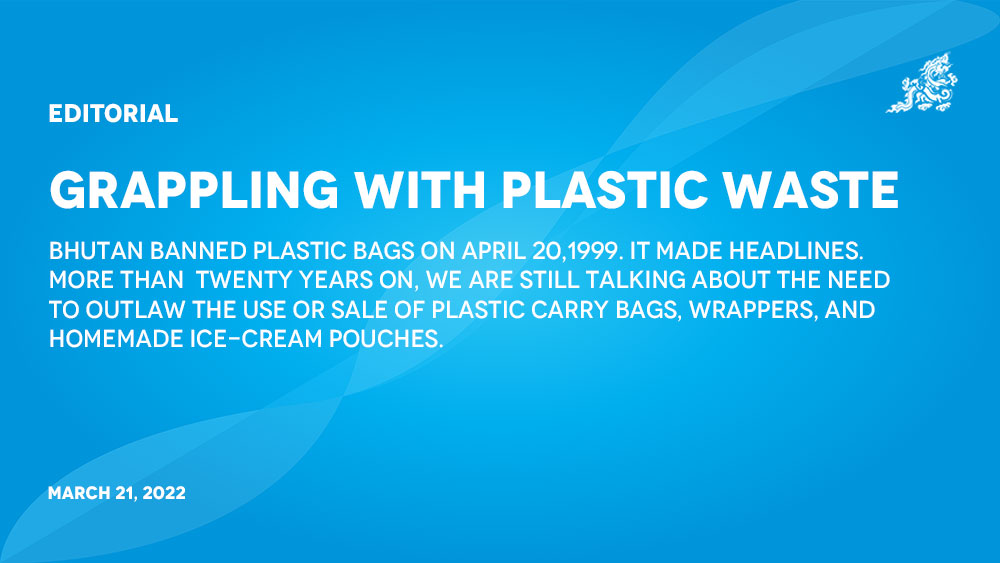Bhutan banned plastic bags on April 20,1999. It made headlines. More than twenty years on, we are still talking about the need to outlaw the use or sale of plastic carry bags, wrappers, and homemade ice-cream pouches.
The National Environment Commission issued a notification in 2019 to reinforce the ban from April 1—the third reinforcement effort since 2005.
Our failure to deal with one of the major problems facing our society today could not be more stark. Going by the type, plastic bags and wrappers constitute the largest share of waste, particularly in the cities and bigger towns. Our drains, pathways and landfill sites are filled with plastic waste. Increasingly, even our pristine forests are being littered with plastic waste.
Bhutan failed to ban plastics because the ban has so far emphasised single-use plastics and there is no proper monitoring and evaluating system in place. Creating awareness and educating people and advocating behavioural change has been our approach which needs to be strengthened significantly. Environmentalists believe that change in import taxation on plastics with strict monitoring could reduce single-use plastics. With this, regular inspection, heavy penalties, and strict monitoring can go a long way in reducing plastic waste in the country.
Sensitisation programmes are important but we must also come up with alternatives if we are to reduce the use of plastic bags.
The member States during the United Nations Environment Assembly that concluded in the first week of March agreed to develop a legally binding treaty by 2024 to end plastic pollution. According to the UN Environment Programme, the treaty is expected to present a legally binding instrument, reflecting alternatives to address the lifecycle of plastics, the design of reusable and recyclable products and materials, and the need for enhanced international collaboration to facilitate access to technology, capacity building and scientific and technical cooperation.
This is an important development which should inspire us to devise tools and policies to control one of the most harmful waste products in the history of mankind.
The coming of waste management flagship programme promises to augment the implementation of the ban and reduce plastic waste in the country. According to an official, plastic ban will not be handled separately; it will be integrated into the programme.
What we need to remind ourselves is that the impact of unmanaged waste on the country’s fragile ecology will be costly. Earnest effort ought to be made to wean ourselves off plastic bags and waste.


